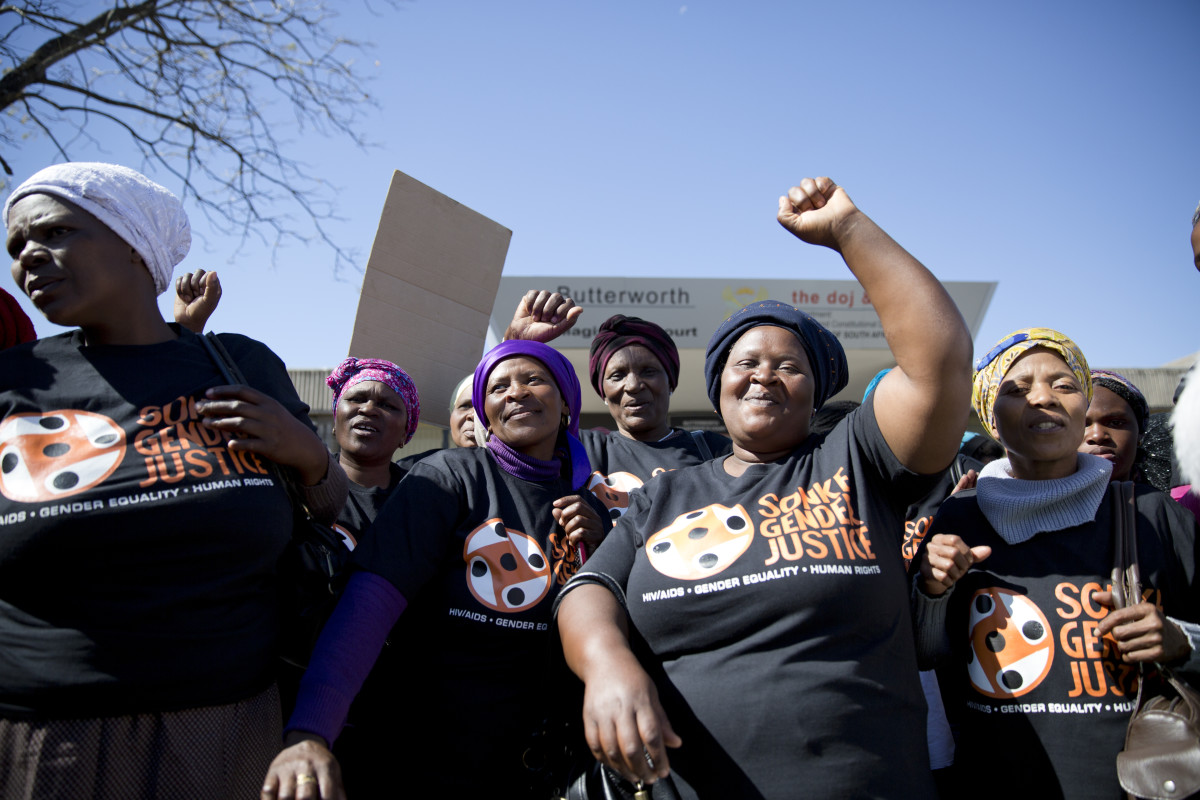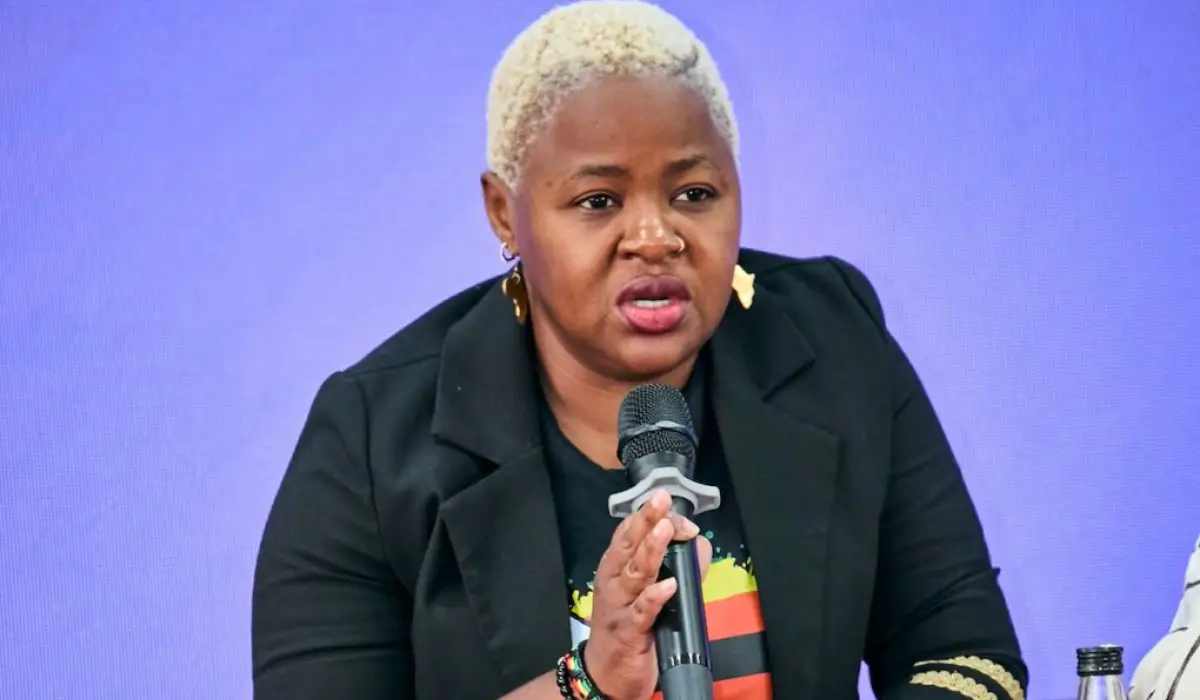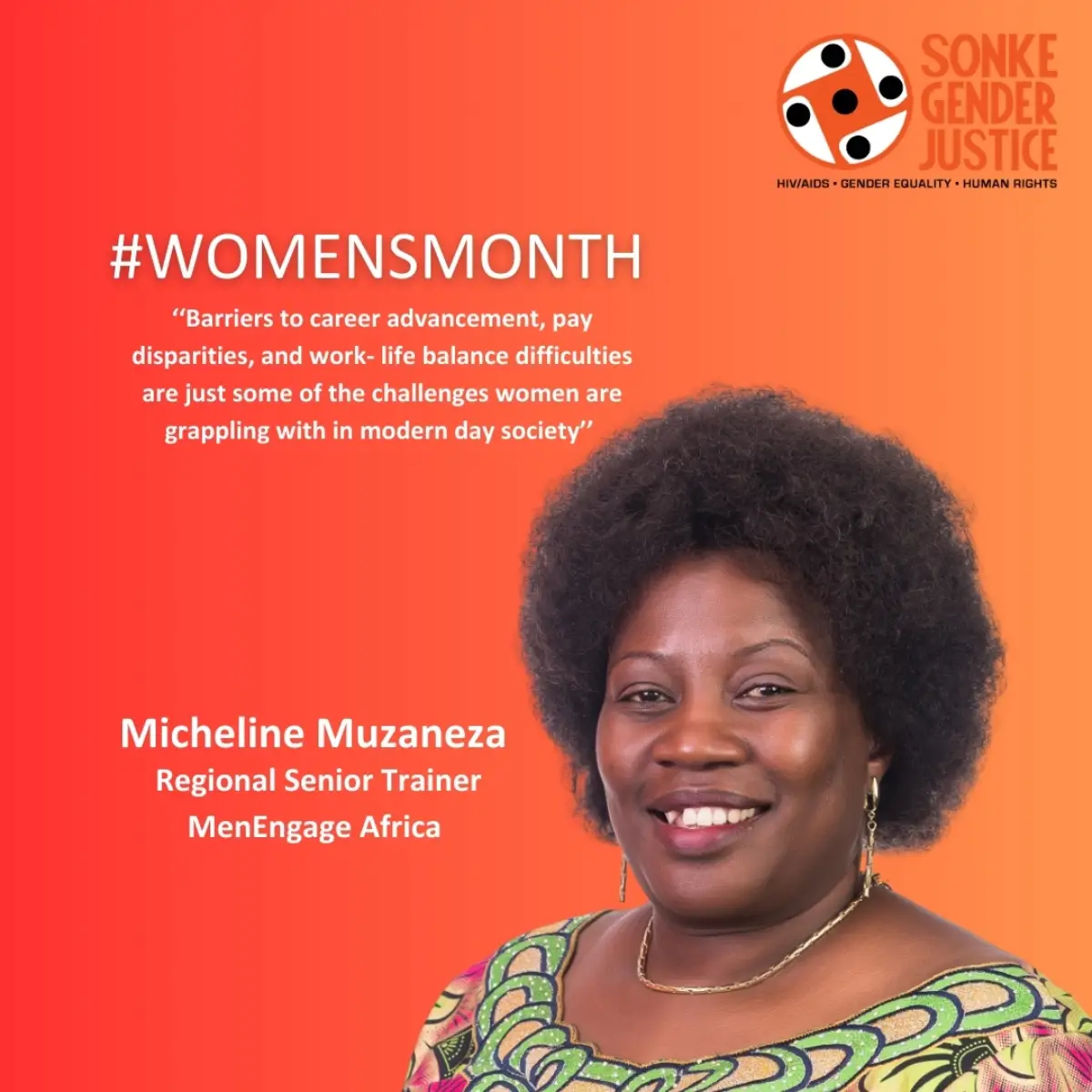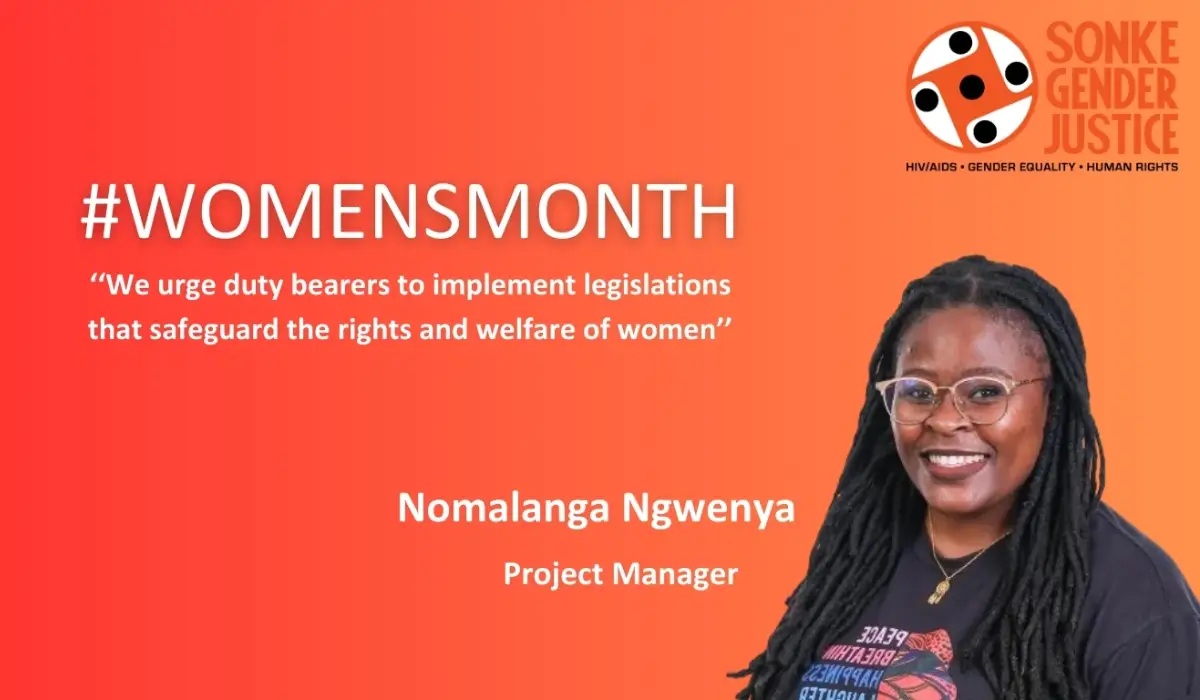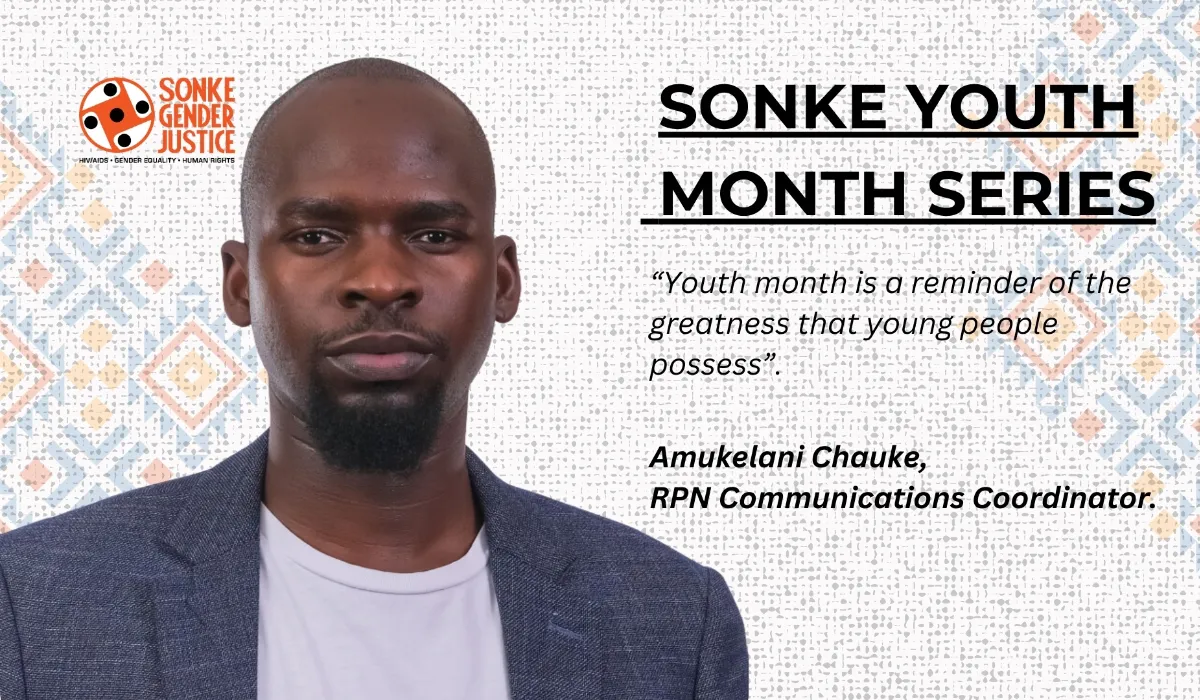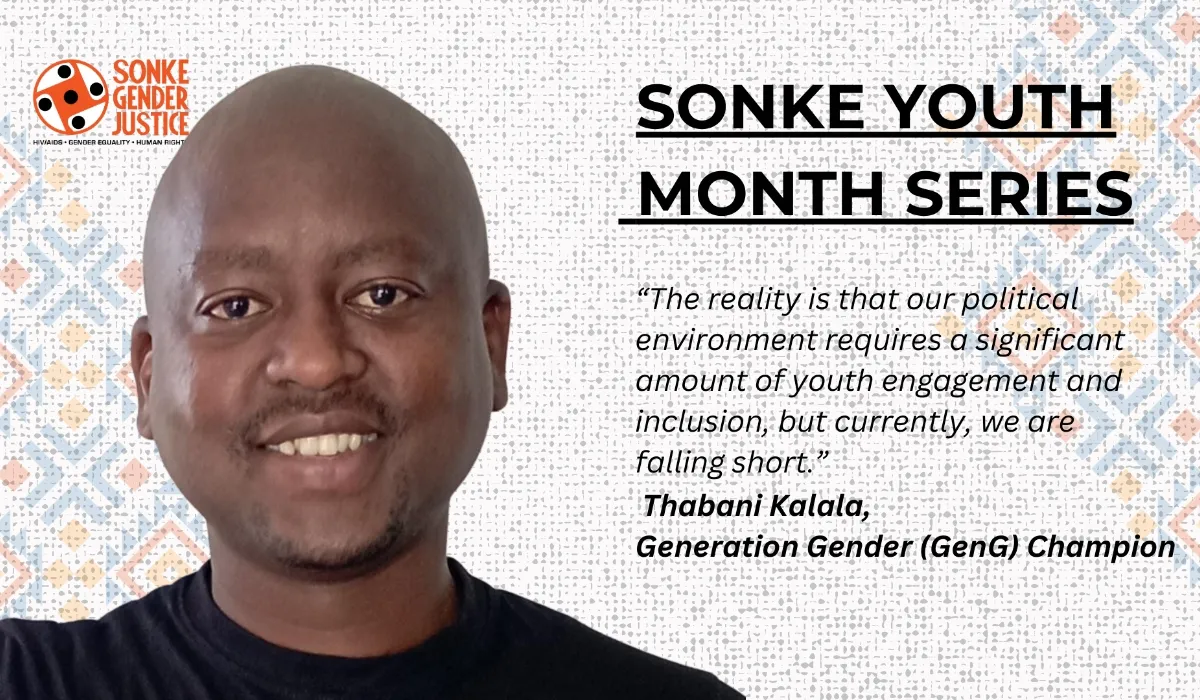After years of deliberation, the Umlazi Regional Court has passed judgement in the Umlazi T section case that caused outrage in the country few years ago. In 2007 Zandile Mpanza was assaulted and made to walk naked in public in Umlazi’s T section for defying a ban on women wearing pants in that area. Thulani Cele has been sentenced to four years in prison under correctional supervision. This means he will have to serve at least eight months before he can be eligible for parole. His younger brother and co-accused Sibusiso Cele has been sentenced to a three-year sentence, suspended for five years, on condition that he is not convicted of similar crimes in that period.
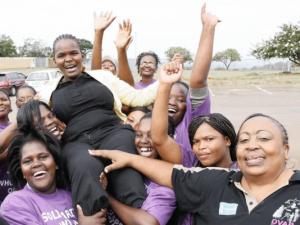
Victory for Zandile Mpanza
We congratulate the defendant in the case, Ms Zandile Mpanza, for pursuing the case over many years and many court hearings. She serves as an example for hundreds of thousands of women who have had their rights and dignity violated in different ways by men still saddled with patriarchal attitudes and a visceral fear of women’s empowerment.
Zandile Mpanza has stood up for her rights and was prepared to defend them at all costs.
We also commend the Commission for Gender Equality for acting as an interested party and supporting the defendant during the case. This is the kind of involvement that gender activists have expected for years from bodies entrusted with promoting the realisation of human rights and we are encouraged to see them stay the course with this case.
In a country with amongst the highest levels of domestic and sexual violence in the world and where the criminal justice system routinely delays cases, loses dockets and submits women to secondary victimisation in police stations and court rooms, the ruling in this case is important and reflects the hard work done by women’s rights activists over many years.
To change longstanding social norms legitimating gender inequality, it is critical that our government and criminal justice system send a clear message that perpetrators of domestic and sexual violence will be held accountable and that women’s rights will be protected. We commend the courts for following through on this case. Nonetheless, it is a bittersweet victory.
Jail sentences won’t solve the problem
Jailing perpetrators of domestic and sexual violence is not enough to promote women’s rights. In fact, there is considerable evidence that our prisons facilitate rape, harden criminals and exacerbate gender inequalities. On Friday May 13th, the same day that the court passed its verdict, the civil society organisations Civil Society Prison Reform Initiative, the Centre for the Study of Violence and Reconciliation, Just Detention International and Sonke Gender Justice launched a manual for training correctional services officials on how to deal with sexual violence in prisons. According to the author of the manual – Just Detention International researcher Sasha Gear – approximately 13 600 prisoners are raped in South African prisons each year. Her research also shows that inmates who have been sentenced for crimes against women and children and first time offenders are more vulnerable to become victims of sexual violence behind bars.
Considering the current state of crisis of the prisons system, prison sentences should not be seen as an end in themselves and as the only way to restore a sense of justice in our communities. For us to deal effectively with sexual violence, we have to engage with other questions: Will the two accused go through an effective prison programme that will truly make them understand the cruelty of their action and the humiliation they caused to the victim? Will Thulani Cele be exposed to human rights education or will the experience in prison simply deepen his contempt for the rule of law? Are there other forms of ‘punishment’ more conducive to re-integration in society? What about community service?
The court ruling is bittersweet for another reason; criminal sanctions will never by themselves change the attitudes and beliefs that contribute to violence against women. To achieve that we need a sustained commitment from government and civil society to educate men and boys about women’s human rights and to challenge the notion that gender equality benefits women at the expense of men, which of course is not the case.
But what’s happening in Umlazi T-section now?
Beyond the accused… What has happened in the Umlazi community in the last years? Has there been any intervention by the Commission for Gender Equality or the Ministry for Women, Children and People with Disabilities to prevent these actions from happening again? Are the traditional, religious or political leaders – who might have exerted influence on the two accused in their formative years – spoken against this and other crimes of similar nature? Are they actively standing for the rights of women in Umlazi? Have non-governmental organisations made an effort to reach out to the Umlazi community? Worringly, Zandile Mpanza has reported that there is still oppression in Umlazi and that women in the area are still not allowed to wear pants.
A brave example for others
With this case finally resolved, we hope other survivors of gender-based violence find courage in the determination of Zandile Mpanza and the firm actions taken by the criminal justice system. Simultaneously, we urge the Department of Correctional Services to take action to ensure that our prisons are safe and do not simply reproduce the same sexual violence sanctioned by our courts and we encourage the now not so new Ministry for Women, Children and People with Disabilities to integrate a strong focus on educating men and boys to support gender equality into their soon to be drafted Gender Bill.

